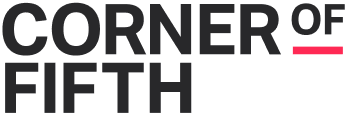
The business landscape is witnessing a notable shift in how companies approach Diversity, Equity and Inclusion (DEI) initiatives. Driven by a combination of political pressure, evolving consumer sentiment, and shifting legal interpretations, many retailers and brands are re-evaluating their DEI strategies.
For marketers and the C-suite, it’s a nightmare that is forcing businesses to completely rethink their approaches.
Managers are rolling up their sleeves and wordsmithing their policies and, in several cases, completely revamping their approach. As a result, there have been shifts in terminology. Terms such as “belonging,” “inclusion,” and “equity” are gaining prominence, often replacing or supplementing “diversity.” This shift emphasizes creating a welcoming and supportive environment for all employees and customers, regardless of their background.
Some companies are scaling back or even discontinuing specific DEI programs, particularly those with explicit goals related to racial or gender quotas in hiring and promotions. This trend is driven by concerns about potential legal challenges and a desire to avoid backlash from conservative consumers and activist groups.
According to a recent Associated Press report, several prominent retailers and brands, including Target, Meta Platforms (Facebook and Instagram), Walmart, Ford, Lowe’s, Harley-Davidson, Brown-Forman, John Deere and Tractor Supply, are retreating from their prior commitments to Diversity, Equity, and Inclusion (DEI) initiatives following the Supreme Court’s affirmative action ruling in 2023. The election of President Trump has also turned up the pressure on removing DEI initiatives. These companies have announced plans to end specific programs and policies that focus on DEI goals in hiring, career advancement, supplier diversity and community engagement.
Key changes include:
- Target is discontinuing its program to enhance careers for Black employees and is halting DEI goals and participation in specific effectiveness surveys.
- Meta Platforms is eliminating its DEI program entirely, ending its diverse slate approach to hiring, and is shifting focus to general practices that mitigate bias.
- Walmart will not renew its commitment to an equity racial center and will stop participating in the Human Rights Campaign’s Corporate Equality Index.
- Ford is no longer participating in hiring quotas or diversity-linked compensation and is withdrawing from the Corporate Equality Index as well.
- Lowe’s will merge its employee resource groups and withdraw from sponsoring events not aligned with direct business interests.
- Harley-Davidson is focusing solely on motorcycling growth and support for specific community groups like first responders, setting aside its DEI-directed efforts.
- Brown-Forman, owner of Jack Daniels, is removing quantitative DEI goals and aligning employee incentives strictly with business performance.
- John Deere is ceasing sponsorship of social or cultural awareness events and revising training materials to exclude socially motivated content.
- Tractor Supply is eliminating its DEI roles and goals, halting non-business activity sponsorships, and reorienting its sustainability efforts towards land and water conservation.
These companies argue that the legal landscape and a purported need for business alignment necessitate these changes, signaling a broader shift in how corporations are addressing social issues and DEI efforts in their operations.
Increased Focus on Business Outcomes
There’s also a growing emphasis on demonstrating the business value of DEI initiatives. Companies are increasingly seeking to quantify the positive impact of their inclusivity efforts on factors such as employee engagement, customer satisfaction and innovation. For publicly traded companies, the pressure to re-evaluate DEI efforts is intense. But some companies are pushing back. On Jan. 23, Reuters reported that Costco shareholders canned an effort for the warehouse club to review its diversity programs.
Considerations for Businesses
If you choose to re-evaluate your business’ diversity efforts, you may want to define clear and measurable goals that align with your business objectives. Focus on creating an inclusive environment that benefits all employees and customers. Consider reframing DEI initiatives around broader concepts of belonging, equity and opportunity.
Prioritizing employee experiences should also be considered. Perhaps focus on creating a workplace culture where all employees feel valued, respected and supported. Investing in training programs that promote inclusivity and address unconscious bias should also be looked at.
Engage with Stakeholders
Lastly, stay informed about changes in legislation, legal interpretations and consumer sentiment related to DEI. Adapt your strategies accordingly to ensure compliance and maintain a positive public image. It is crucial for businesses to carefully consider their unique circumstances and consult with legal and HR professionals to develop and implement DEI strategies that are both effective and sustainable.
Disclaimer: This report provides a general overview of the current trends. Specific situations may vary depending on the industry, company size and other factors.
Looking to make your brand sing? Check out Corner of Fifth’s full suite of services.

